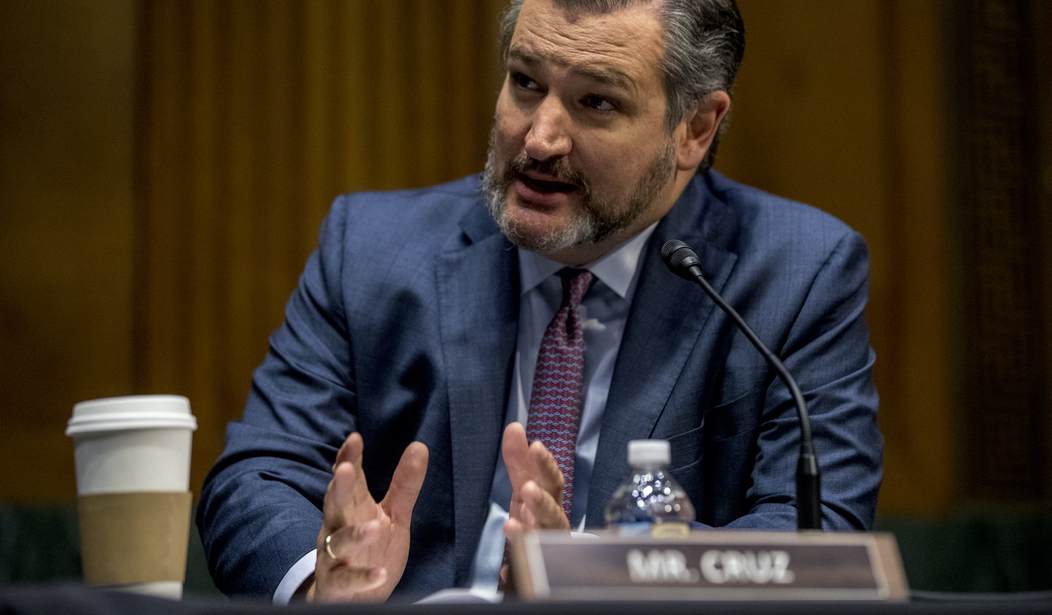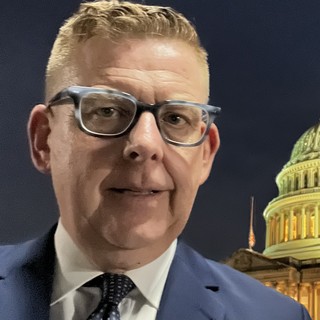In an exclusive RedState interview, Sen. Ted Cruz (R-TX) explained why his bill to preserve AM radios in vehicles is a winner for consumers and the country.
The Cruz bill, The AM Radio for Every Vehicle Act, which would mandate that automakers keep the AM radio, already has 47 co-sponsors and passed the Senate’s Committee on Commerce, Science, and Transportation, so it is awaiting a floor vote.
This should be the year to celebrate the centennial of the AM car radio, a fixture in automobiles up until now. Yet instead of celebrating this landmark, BMW, Mazda, Volkswagen, Tesla, and others are all planning to eject AM radio from the dashboard.
As recently as February, John Bozzella, the CEO of the Alliance for Automotive Innovation, an industry trade group, pushed this ejection because electric vehicle circuitry creates interference with AM reception.
Rather than spending $3.8 billion to fix the problem, the carmakers want to strip AM radios from gas and electric models — despite the opposition on Capitol Hill and from the tens of millions of Americans who rely on AM radio.
There are a lot of places in the country that depend on AM radio for news and emergency information. I introduced the AM Radio for Every Vehicle Act to protect AM radio, and I am working to get this bipartisan bill across the finish line.https://t.co/TBZtXWDYZ4
— Ted Cruz (@tedcruz) October 18, 2023
According to Nielson’s June 19, 2023, “Radio Insights” reports, while AM radio reaches 91 percent of the population every month, 74 percent of AM radio listeners listen primarily in the car. This means that taking AM radios out of vehicles would be a body blow to the industry.
Cruz told RedState that the popularity of the bill did not surprise him.
“The AM Radio for Every Vehicle Act has overwhelming bipartisan support,” the senator said.
“When we took it up in the Commerce Committee, it passed out of the Commerce Committee with overwhelming bipartisan support, and why is that? Because on the merits, this bill is the right thing to do for the American people,” he said.
The senator said he had personal experience relying on AM radio during a natural catastrophe.
“In times of disaster, AM radio is the single most reliable medium for communicating about a natural disaster,” he said.
“I remember the enormous challenges when Hurricane Harvey hit my home city of Houston and the entire Texas Gulf Coast,” he said. “People relied on AM radio.”
AM radio was there when other means of media failed, he added.
“When other forms of communication go down,” Cruz said, “AM radio is consistently the most resilient to help people get out of harm’s way.”
“Whether it is getting out of the way of a hurricane, getting out of the way of a tornado, getting out of the way of a forest fire, or any other disaster,” he noted, "AM radio is there to help people know where to go and how to keep their families alive.”
Cruz said in addition to being a lifeline during disasters, AM radio contributes to culture and the body politic, because of its extended range and low barriers to entry.
“AM radio promotes a diversity of views because the barriers of entry to getting into AM radio are relatively low; to start an FM station is quite expensive,” he said.
“An AM station is much cheaper to start and to operate, and as a consequence, we see a beautiful array of diversity of views reflected on AM radio nationally,” he said.
This is one of the reasons The National Association of Black-Owned Broadcasters has weighed in to support the Cruz bill.
Jim Winston, the NABOB president and CEO, wrote in a letter to the Congressional Black Caucus that his members were very concerned about carmakers removing AM radios from vehicles.
“The removal of AM radio from electric vehicles would be a step backward in broadcasters’ efforts to promote diversity and inclusivity in media,” he wrote.
“It would reinforce the dominance of mainstream media outlets and limit the diversity of voices and perspectives that are heard,” he noted.
“Black audiences rely upon AM radio for news, religious, and entertainment programming as the country moves toward greater use of electric vehicles,” Winston wrote. “The loss of AM radio in their cars will have a severe negative impact on Black communities across the country.”
Cruz’s own view on the survival of AM radio echoes Winston's.
“AM radio is a haven for free speech,” he said.
“AM radio is a haven for people to speak, even if their views are disfavored by the political ruling class,” he said. “Talk radio is an oasis for conservative speech.”
The threat to conservative programming amounts to censorship, he said.
“I believe these automakers stood up to remove AM radio as part of a broader pattern we see of censoring views that are disfavored by Big Business,” he said.
“I think this is consistent with what Big Tech has done, silencing views they disagree with, and so this bill is all about preserving consumer choice—letting consumers decide.”
RELATED:
Capitol Hill Source: Cruz to 'Hotline' His Bill to Save AM Radio
The Reason Conservative Talk Radio Still Thrives While Progressive Anchors Slip















Join the conversation as a VIP Member